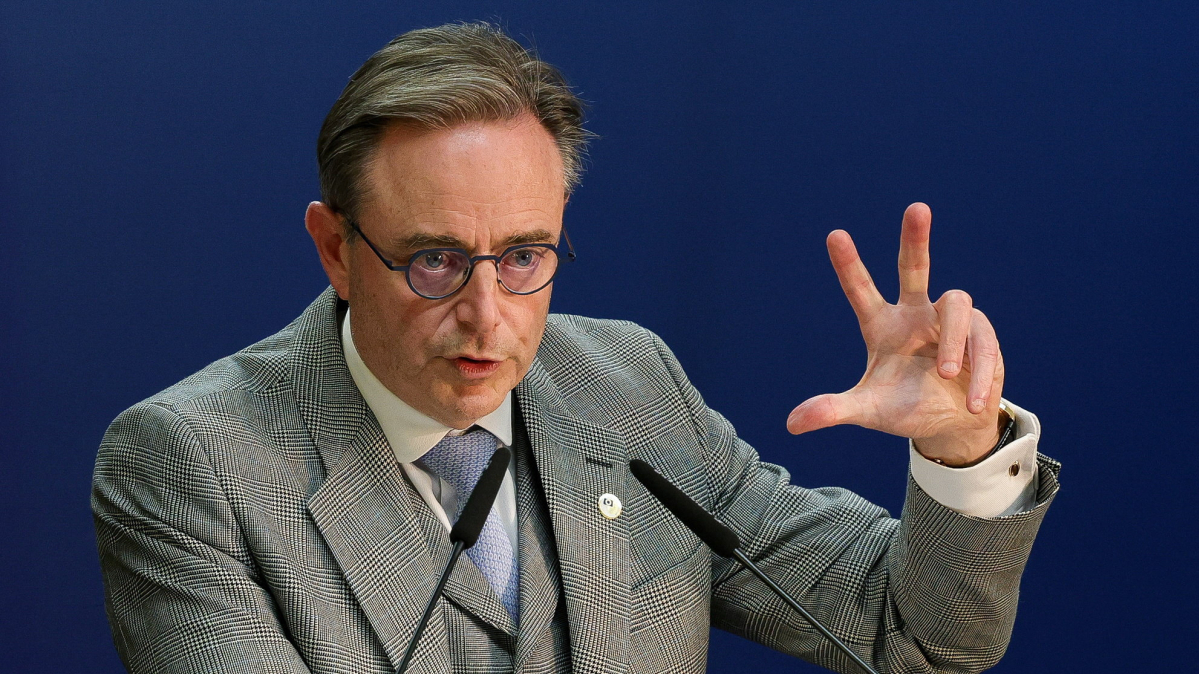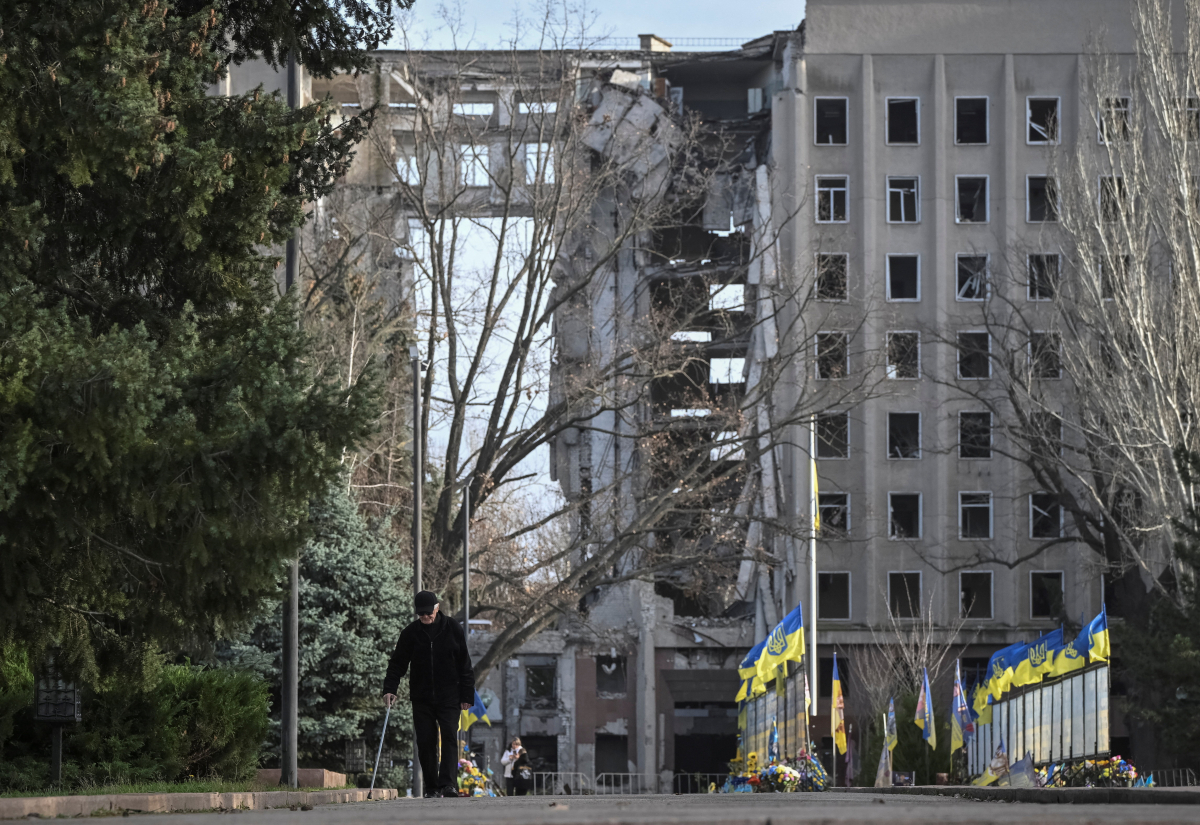NASA moon mission likely delayed following technical issues
A technical fault in the helium system of NASA’s next-generation moon rocket was announced on Saturday, ruling out the planned March launch window f...

The European Union’s high-stakes strategy to leverage hundreds of billions in frozen Russian capital to prop up Ukraine’s defence has hit a critical roadblock, with Belgium warning that the move could torpedo fragile diplomatic openings aimed at ending the conflict.
Belgian Prime Minister Bart De Wever has intervened directly in the debate, cautioning that the immediate liquidation or repurposing of Russian sovereign assets could remove a vital bargaining chip just as the nearly four-year war enters a decisive phase.
Belgium’s stance is the linchpin of the entire operation. The country finds itself at the centre of this geopolitical storm because the vast majority of the assets, roughly €190 billion ($220 billion), are held by Euroclear, a Brussels-based financial services company that serves as one of the world's most critical settlement houses.
The Peace Deal Dilemma
"Hastily moving forward on the proposed reparations loan scheme would have, as collateral damage, that we as the EU are effectively preventing reaching an eventual peace deal," De Wever wrote in a letter to European Commission President Ursula von der Leyen, seen by Reuters.
The intervention highlights a growing rift within the bloc as the war drags towards its fourth year. While hawkish nations in the Baltics and Eastern Europe have pushed for the full confiscation of Russian funds, Western European capitals have remained wary of legal precedents and the stability of the Eurozone.

At a summit last month, EU leaders attempted to finalise a plan to use €140 billion ($162 billion) of these assets as collateral for a loan to Kyiv. However, they failed to secure backing from Belgium, which fears it will be left solely responsible for the legal and financial fallout.
Systemic Risks and Reparations
De Wever’s objection is twofold: the timing of the move relative to potential peace negotiations, and the systemic risk to the global financial architecture.
"The proposed reparations loan scheme is in my view fundamentally wrong," De Wever stated, arguing that under international law, immobilised assets are traditionally dealt with during post-war settlements as part of reparations by the losing party, not utilised while hostilities are active.
The Belgian government is acutely concerned about the exposure of Euroclear. Moscow has previously threatened to seize Western assets trapped in Russia and launch infinite litigation against the Belgian clearinghouse, potentially destabilising a pillar of the global financial system.
A Race Against Time
The letter comes as the European Commission prepares to address Belgium's concerns in draft legal proposals, which officials suggest could be presented this weekend.
The clock is ticking for Kyiv. Von der Leyen has championed the asset scheme since September to plug Ukraine’s widening financing gap for 2026, particularly as many EU member states face domestic pressure to stop taking on new mutualised debt to fund the war effort.
Apart from the funds immobilised in Belgium, an estimated €25 billion of Russian assets are frozen in EU banks elsewhere, mainly in France and Luxembourg.
Belgium has previously insisted that any confiscation scheme must be backed by the entire G7—including the United States, Britain, and Japan—to share the legal risk, rather than leaving the EU, and specifically Brussels, to bear the brunt of Russian retaliation.
The Commission hopes to force a breakthrough at the upcoming summit of EU leaders on December 18-19.
Quentin Griffiths, co-founder of online fashion retailer ASOS, has died in Pattaya, Thailand, after falling from the 17th floor of a condominium on 9 February, Thai police confirmed.
At least four people have died and 17 others were injured after a liquid gas truck overturned and exploded in Santiago, Chile’s capital, authorities confirmed on Thursday. Police said the driver was among those killed.
Cubans are increasingly turning to solar power to keep businesses operating and basic household appliances running during prolonged electricity cuts, as fuel shortages make diesel generators and other temporary solutions more difficult and costly to maintain.
Ukraine’s National Paralympic Committee has announced it will boycott the opening ceremony of the Milano Cortina 2026 Paralympics in Verona on 6 March, citing the International Paralympic Committee’s decision to allow some Russian and Belarusian athletes to compete under their national flags.
Eric Dane, the actor best known for his roles in 'Grey’s Anatomy' and 'Euphoria', died on Thursday, at the age of 53 after a battle with amyotrophic lateral sclerosis (ALS). His family confirmed his death after what they described as a “courageous battle” with ALS.
A technical fault in the helium system of NASA’s next-generation moon rocket was announced on Saturday, ruling out the planned March launch window for the Artemis II mission.
President Donald Trump said on Saturday (21 February) that he will raise temporary tariffs on nearly all U.S. imports from 10% to 15%, the maximum allowed under the law, after the Supreme Court struck down his previous tariff program.
Germany's ruling conservatives on Saturday (21 February) passed a motion to ban social media use for under 14s and introduce more stringent digital verification checks for teenagers, building momentum for such limits in Germany and elsewhere in Europe.
India and Brazil signed a mining and minerals cooperation pact on Saturday (21 February), as Prime Minister Narendra Modi said the two countries aim to increase bilateral trade to more than $20 billion within five years.
The Russian Defence Ministry claimed on Saturday (21 February) that its forces had captured another settlement in eastern Ukraine.
You can download the AnewZ application from Play Store and the App Store.

What is your opinion on this topic?
Leave the first comment